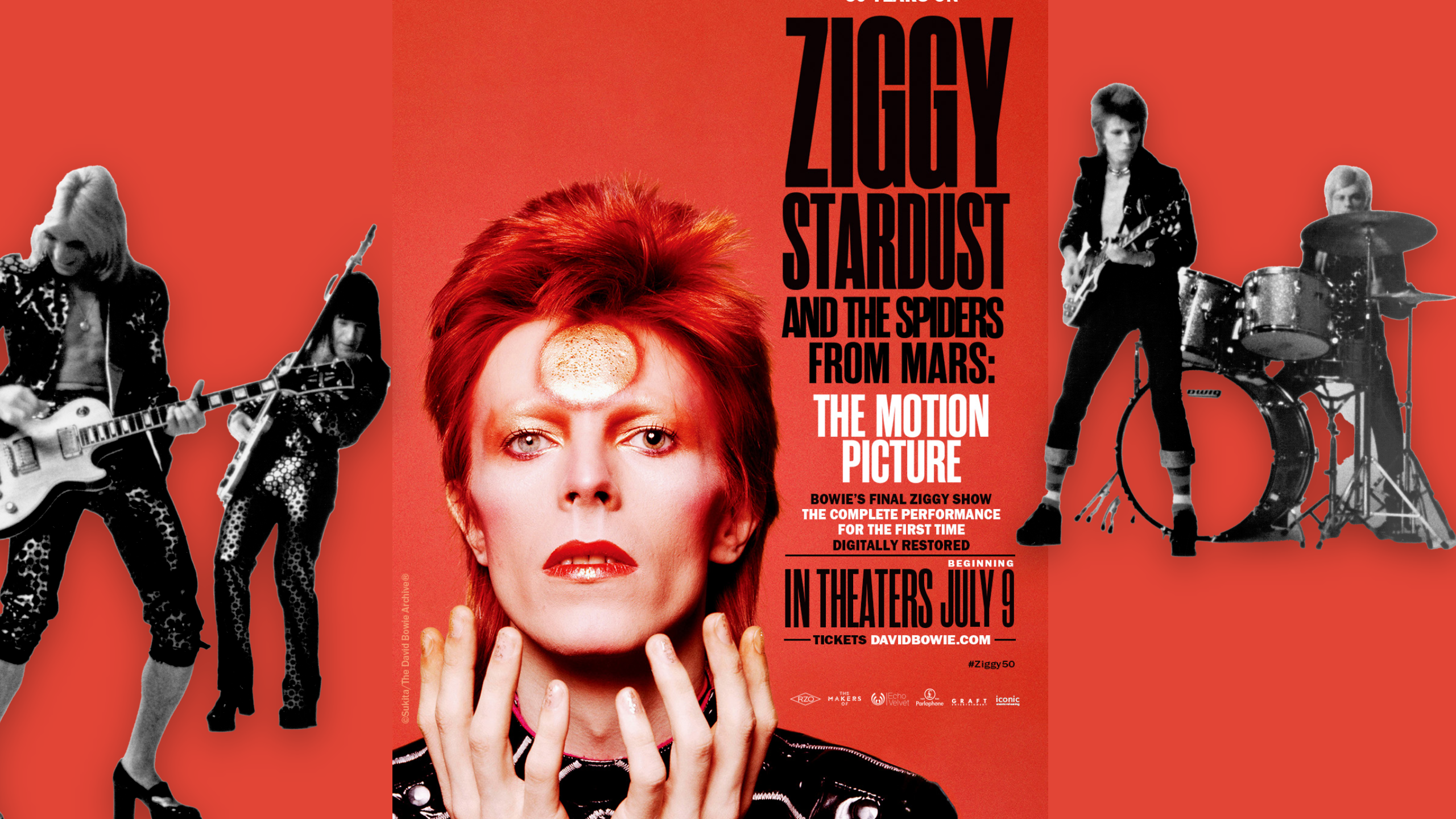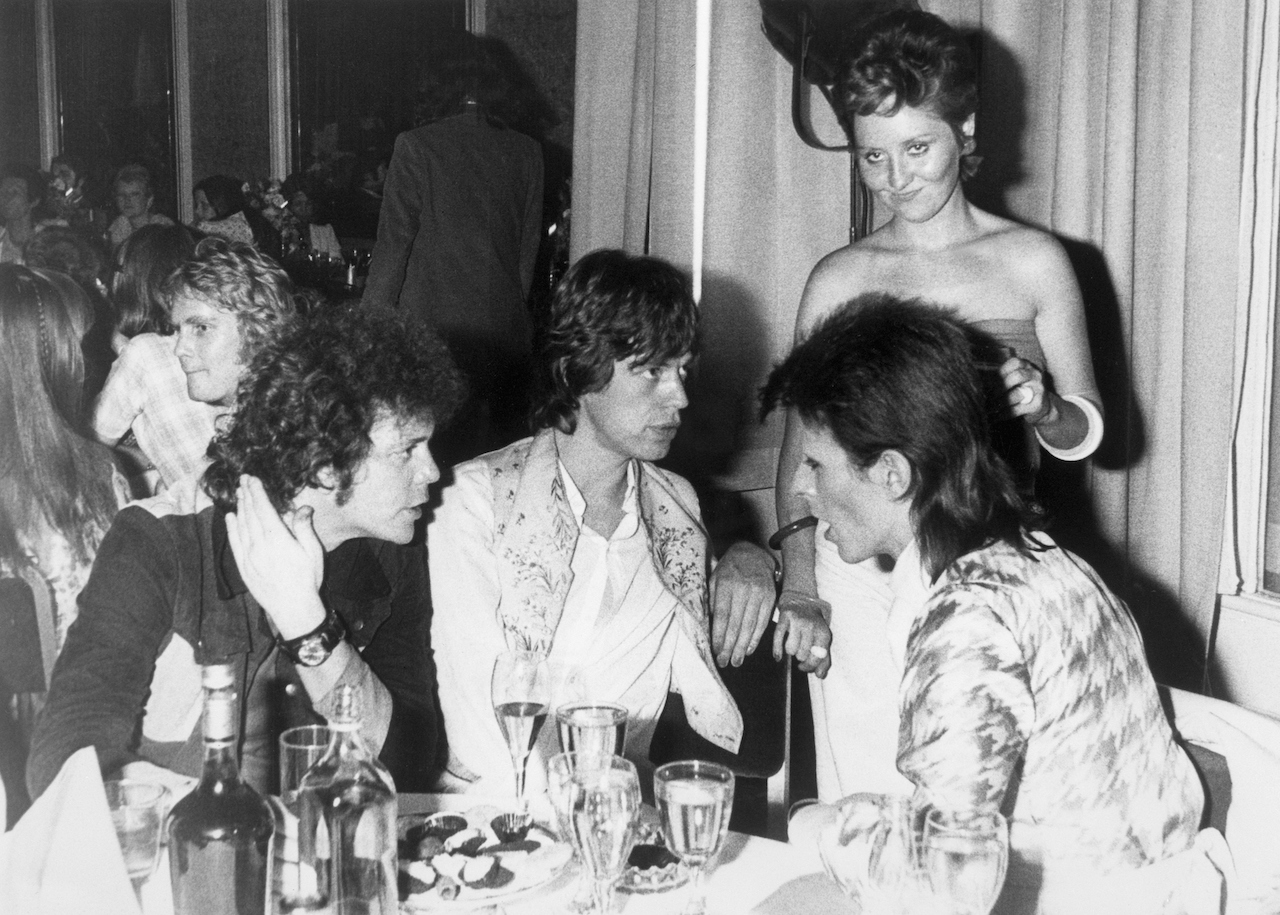
Almost 50 years ago, on July 3, 1973, David Bowie shocked his fans at a gig in Hammersmith, London, by saying it was the last show he would ever do. It was a fantastic bit of showbiz – really, it was only the end of his Ziggy Stardust character, not the last show for David Bowie – but it did mark the end of the road for the Spiders From Mars, the backing band that had transformed Bowie from a struggling Dylan-influenced one-hit wonder into the most exciting glam rock star of the 70s.
To mark the 50th anniversary, Ziggy Stardust And The Spiders From Mars: The Motion Picture, the classic concert movie by D.A. Pennebaker has been digitally restored and is being re-released in US cinemas throughout July. But the question remains: why did Bowie fire the band that had transformed him from a struggling Dylan-influenced singer-songwriter with two novelty hits behind him into a glam rock superstar?
Guitarist Mick Ronson and drummer pal Mick "Woody" Woodmansey joined for 1970's The Man Who Sold The World. When bassist-producer Tony Visconti left to work with Bowie's friend and rival Marc Bolan, Ronson and Woodmansey drafted in another friend from the Hull music scene: Trevor Bolder. The albums they made together transformed Bowie's career: Hunky Dory (1971), The Rise And Fall Of Ziggy Stardust And The Spiders From Mars (1972) and Aladdin Sane (1973).
Aladdin Sane was not long completed when Bowie announced from the stage of the Hammersmith Odeon: “Of all the shows on this tour, this particular show will remain with us the longest – because not only is it the last show of the tour, but it’s the last show we’ll ever do. Thank you.”
It came as a complete shock to Woody and Bolder (Ronson had been forewarned) – but really the trouble had started months before as the band travelled to New York’s Radio City Music Hall on February 14. Sitting beside their new keyboard player Mike Garson, who had just contributed some stellar musicianship to the Aladdin Sane sessions, Bolder discovered that Garson was being paid $1,000 a week while they were on £30. The rhythm section confronted Tony Defries, Bowie's manager: “We demanded a rise," said Bolder, "or we were going home on the next plane.”
Ronson smoothed things and the US tour went ahead but Bowie was not pleased. “David was furious, just furious," said Angie Bowie, Bowie's then-wife. "They can’t hold me up like that’, he told me. ‘I don’t care who they are, I simply won’t have that kind of disloyalty’. From then on, his passive-aggressive machinery engaged gears and the lads’ days were numbered.”
On the quiet, Defries plotted getting rid of the rhythm section. Ronson's skills as a guitarist and arranger meant he was safe – to begin with. DeFries offered to manage Ronson with promises of making him a solo star. Meanwhile, the cold shoulder started: Bowie’s entourage stayed at The Plaza in New York, while Ronson, Woodmansey and Bolder were sent to a cheap hotel. Bowie hob-nobbed with Andy Warhol and Mick Jagger; the boys from Hull got drunk down Greenwich Village.
They were trying to cut costs, while Defries insisted Bowie travelled first class and stayed in the best hotels. The debts mounted and Defries faced bankruptcy– and it was the boys from Hull who got the brunt of it.
Trevor Bolder told Classic Rock's Max Bell: “We had to crack America because Defries had borrowed so much money, but it meant the Aladdin Sane tour wasn’t pleasant. Fair enough, David couldn’t be Ziggy forever but he had this expensive lifestyle while me and Woody could barely exist. The royalties weren’t arriving; they never arrived. We got nothing in the end and either David didn’t know what was going on or he ignored it. In the end, Defries did the same thing to him. People will rob you in this business.”
When the tour moved to Japan, Trevor and Woody were told by Defries that RCA had agreed to up their wages to £500 a week. But he added: “I don’t think you’re worth a penny of it. In fact, I’d rather give it to the road crew because they’re worth more than you.” Woodmansey told DeFries where to go – and again, Ronno saved the day.
By 3 July and the Hammersmith show, Bowie was convinced it was time to bring things to a close. When he heard the announcement on the stage, Woody thought it was just a publicity stunt: “Because of his character, there were always things of that nature thrown around. We weren’t sure that it wasn’t just a publicity stunt.”

The truth dawned not at the aftershow party at the Inn On The Park but at an exclusive gathering on July 4 at Café Royal, where Bowie held court with Mick and Bianca Jagger, Lou Reed, Rod Stewart, Jeff Beck, Keith Moon, Cat Stevens, Lulu, Barbra Streisand, Sonny Bono, Tony Curtis, Ryan O’Neal, Elliot Gould, DA Pennebaker and Paul and Linda McCartney. Peter Cook and Dudley Moore provided ribald cabaret. Dr John played the piano.
Bolder says: “Bowie and his mates were sitting at a table having a jolly good time, and me and Woody were ignored like we weren’t even in the band.”
Even Angie Bowie was surprised by her husband’s callous attitude. “Trevor said, ‘We’re out of a job, Angie. He’s given us the fookin’ sack!’ What is freaky – chilling – is the fact that he kept them on… and only once they’d given him their best and were enjoying their most triumphal moment, did he let them have it – full bore… in the most public, humiliating manner possible.” Angie thought this was “ruthlessness – non-confrontational cowardice, and cruelty”.
Bolder was coaxed back for the recording of Pin-Ups when a deal with Jack Bruce fell through. When Ronson's solo album Slaughter On 10th Avenue failed to live up to expectations, DeFries and Bowie dropped him too. Years later, Bowie justified his decision. “I didn’t quite know what I was getting myself into, because I knew it was the end of the Spiders. I knew that I had done as much as I could within the context of that band. And I was so weary of touring that I actually did wonder whether I really wanted to tour again. So I just said, ‘We will never tour again,’ and I really meant it.
"And about 48 hours later, I’m sitting there thinking, ‘What have I said? I don’t really think I meant that, because I’m feeling better already,’ but it was too late. I really pissed off Woody and Trevor because they were so angry, I think because I hadn’t really told them that I was splitting the band up.
"But that’s what Ziggy did, so I had to do it too.”
David Bowie's Ziggy Stardust And The Spiders From Mars: The Motion Picture is showing at selected cinemas across the US throughout July. For info and tickets visit Bowie's website. A 50th Anniversary Soundtrack album will be released on 11 August via Rhino.







